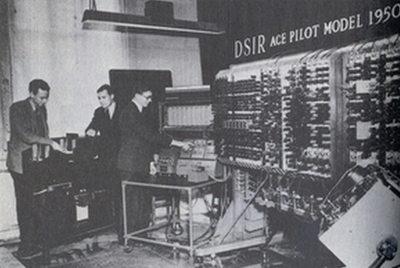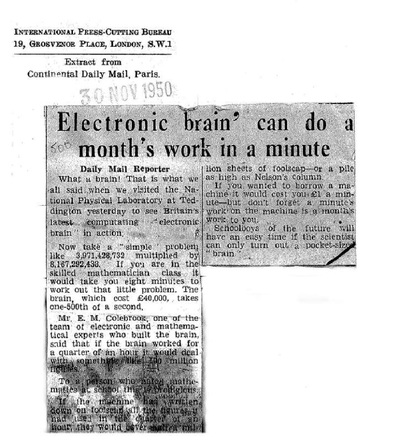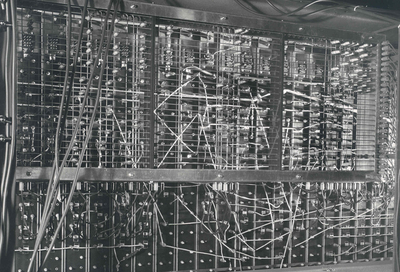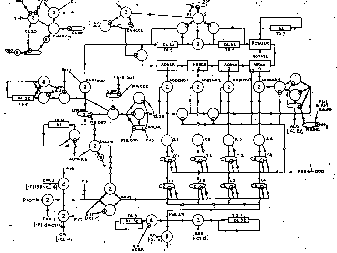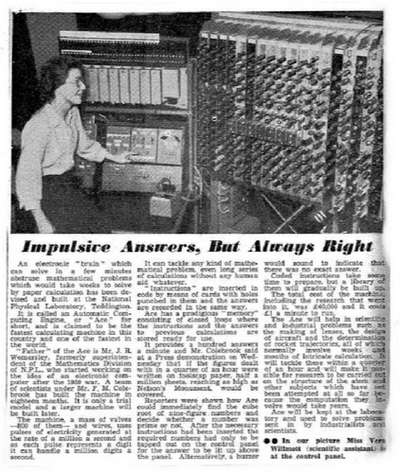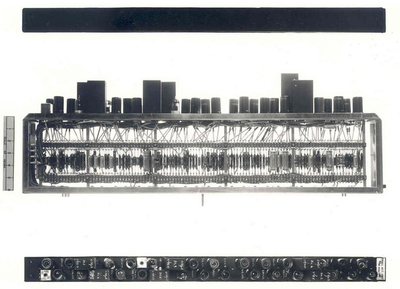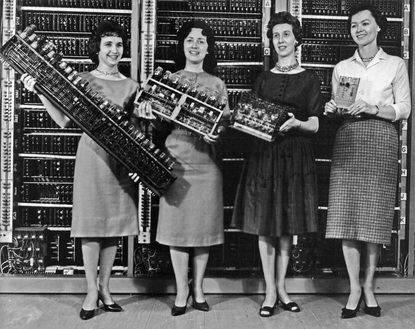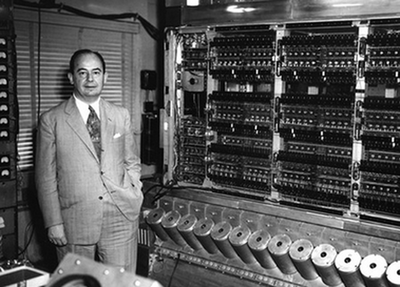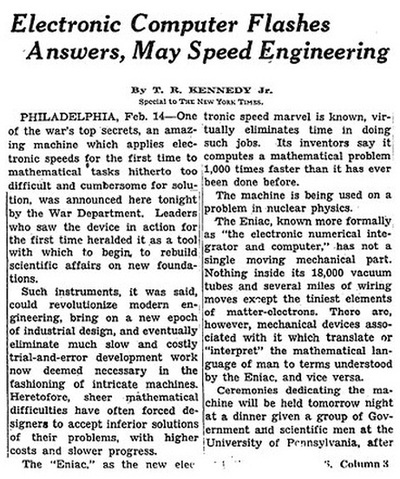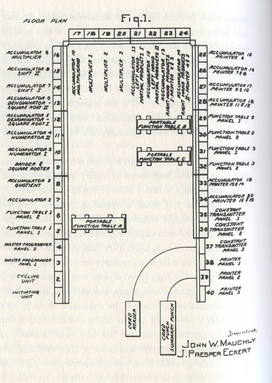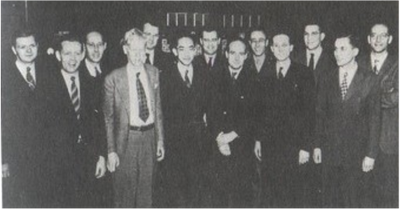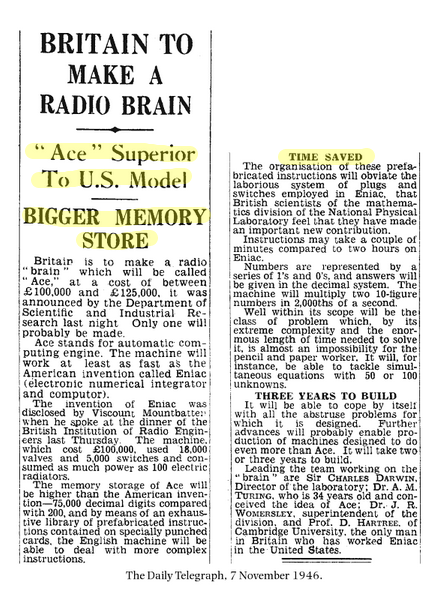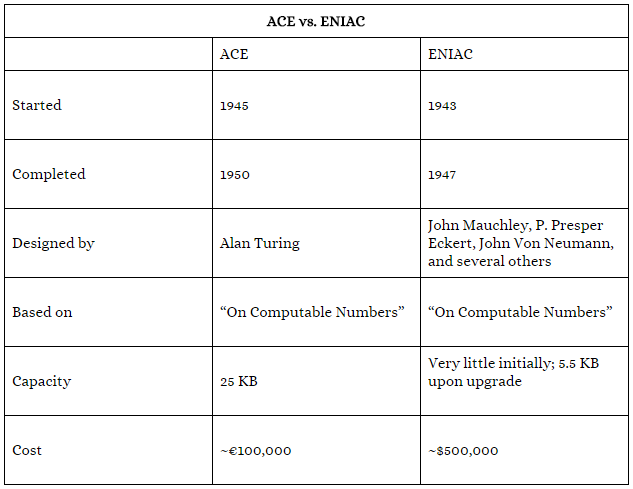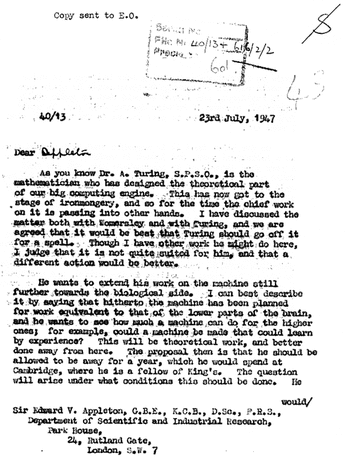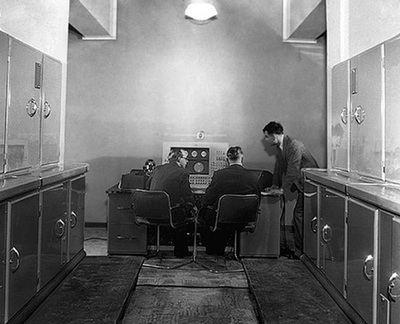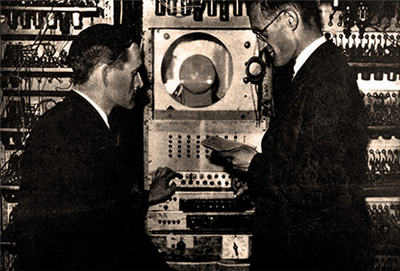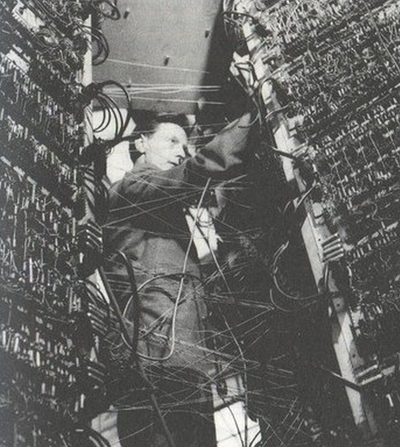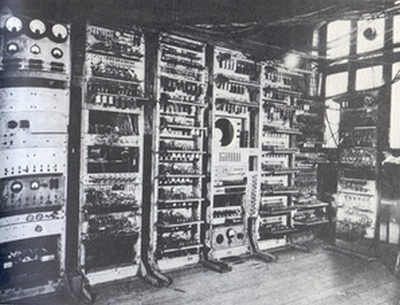The Computer Age, 1943-50
Intrigued by computers, Turing joined the National Physical Laboratory in 1943. There, he championed the Automatic Computing Engine (ACE), a fully realized universal machine.
“The ACE is, in fact, analogous to the ‘universal machine’ described in my paper on computable numbers [...] Without altering the design of the machine itself, it can, in theory at any rate, be used as a model of any other machine, by making it remember a suitable set of instructions.” –Turing [10]
Though not technically intelligent machinery, the ACE placed emphasis on software rather than hardware; this programmability made it a stepping stone on Turing's road to technological leadership.
“There are indications [...]that it is possible to make the machine display intelligence at the risk of its making occasional serious mistakes.” –Turing [11]
|
Concurrently, the Electronic Numerical Integrator and Computer (ENIAC) was engineered by an American team including John Von Neumann. Likely inspired by On Computable Numbers, the progress ENIAC made can be indirectly attributed to Turing.
A Friend of Von Neumann's on How Turing Influenced ENIAC, 1979,
Alan Turing: The Enigma |
Left: Patsy Simmers, Holding ENIAC Board, n.d., Kent State University
|
|
Britain to Make a Radio Brain, 1946,
The Turing Digital Archive |
Though the ACE was more efficient, ENIAC was completed first and became more successful. The events of Bletchley Park having been classified, Turing was of little account, putting his work at a vast disadvantage.
ACE and ENIAC Comparison, Student Made
|
|
Turing’s Supervisor on Why He Left, 1947, The Turing Digital Archive
|
Turing left before ACE was completed, compelled to delve further into concepts of intelligent machinery.
“In working on the ACE I am more interested in the possibility of producing models of the action of the brain than in the practical applications to computing.” –Turing [10]
“In creating the ACE, Turing’s main motivation was to create a platform with which to test Artificial Intelligence programs. He pioneered a slew of concepts that later became central to the field.” [12]
|
Turing's subsequent project, the scanner-operated Manchester Computer, was among the first to draw excitement and debate on intelligent machinery. In fact, Turing himself would soon write his first report on the subject.
